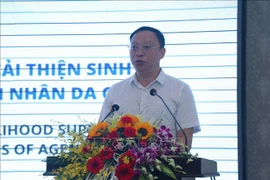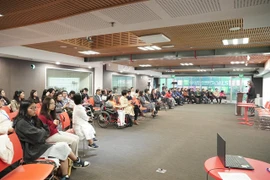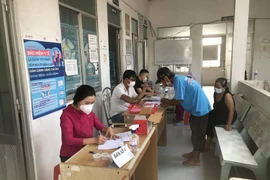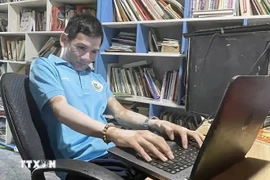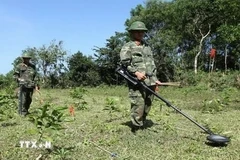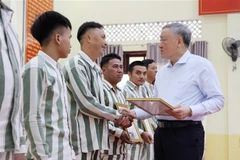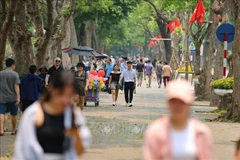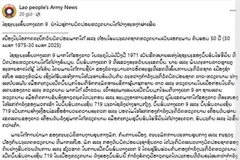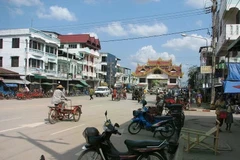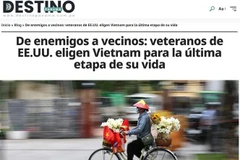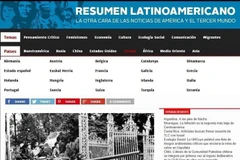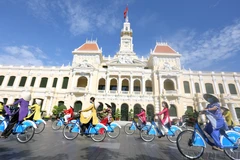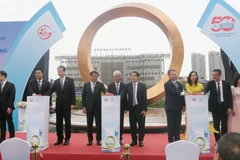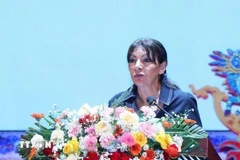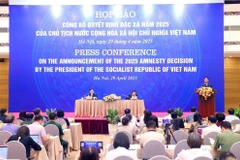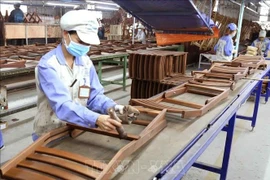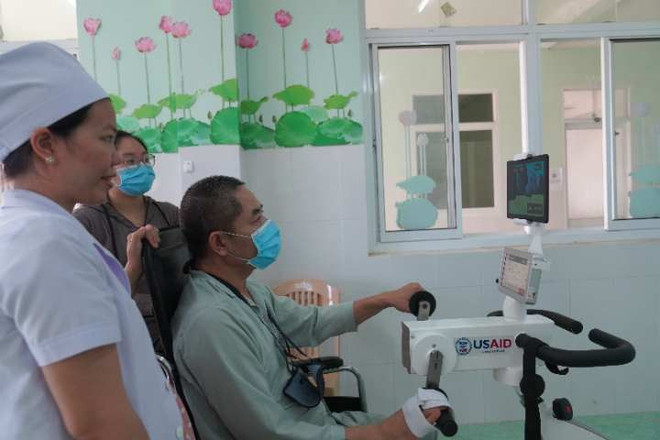 USAID sponsors rehabilitation equipment at Binh Dinh province’s Traditional Medicine and Rehabilitation Hospital. (Photo: VietnamPlus)
USAID sponsors rehabilitation equipment at Binh Dinh province’s Traditional Medicine and Rehabilitation Hospital. (Photo: VietnamPlus)
Hanoi (VNA) - Since 1991, the US Government has contributed more than 155 million USD to improve the quality of life for millions of Vietnamese persons with disabilities (PWDs), as part of efforts to help the Southeast Asian country address post-war aftermath, the US Agency for International Development (USAID)’s Mission Director for Vietnam Aler Grubbs has said.
PWDs make up 7% of Vietnam's population, so the need for rehabilitation services is huge, she said in an interview with VietnamPlus e-newspaper about the US support for healthcare services for PWDs on the occasion of the Vietnam Day of Persons with Disabilities (April 18).
According to a survey conducted in 2020 by the Ministry of Health, there was a shortage of functional rehabilitation personnel at all levels, which met only 50% of the demand. Thus, it is necessary to improve the functional rehabilitation service systems and enhance human resource training in this field, the official noted.
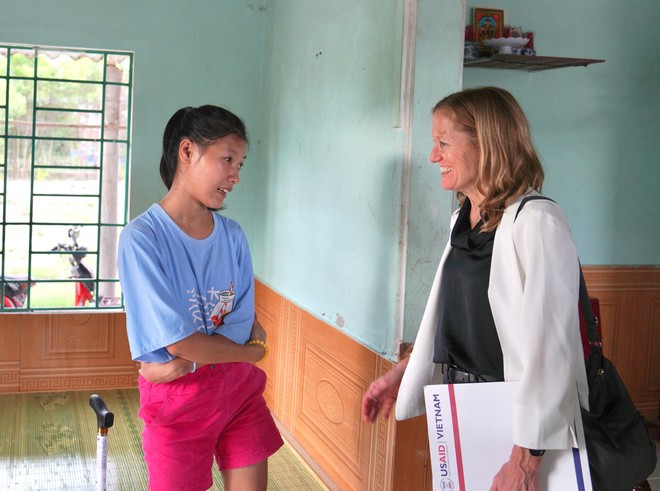 Aler Grubbs visits the family of a disabled child in Thua Thien- Hue province benefiting from USAID support. (Photo: VietnamPlus)
Aler Grubbs visits the family of a disabled child in Thua Thien- Hue province benefiting from USAID support. (Photo: VietnamPlus)
She also underlined the need to introduce new functional rehabilitation specialties, and continue to develop infrastructure, assistive technologies, and increase financial resources for the rehabilitation sector in Vietnam. By doing so, the number of people who can access sustainable and high-quality services will increase significantly, Grubbs said, adding that the US government is coordinating with Vietnam to address these challenges.
According to Grubbs, PWDs in Vietnam and around the world face the same barriers, including access to education, employment and transportation, and inclusion in decision-making processes, policies and events that affect them.
The US Mission Embassy in Vietnam, through USAID, is providing assistance in various areas, including functional rehabilitation services, home care, social services, improving accessibility, promoting economic inclusion, and supporting the enforcement of the country’s policies on PWDs, she said. Their support focuses on provinces heavily sprayed with by Agent Orange.
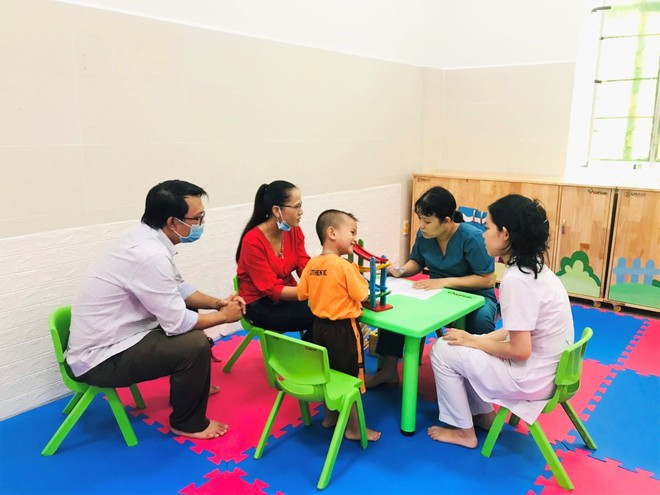 USAID supports the establishment of the first speech therapy unit in Tay Ninh province. (Photo: VietnamPlus)
USAID supports the establishment of the first speech therapy unit in Tay Ninh province. (Photo: VietnamPlus)
The US support significantly contributes to promoting equal rights for PWDs, including efforts to remove barriers to their integration in all aspects of social life, she said, citing the adoption of the Law on PWDs and the establishment of the National Committee on PWDs, a model that follows best practices in the world as examples.
The US has also assisted Vietnam in the development of the first Bachelor of Occupational Therapy.
Since 2016, USAID has supported about 300 students to complete bachelor or postgraduate programmes in Occupational Therapy and Speech Therapy as well as universities to roll out master's programmes in these fields. For the first time, these results have significantly contributed to enhancing Vietnam's high-skilled rehabilitation workforce, enabling many communities to access functional rehabilitation services.
With the goal of expanding access to essential healthcare services, USAID has helped Vietnam in revising health insurance regulations, resulting in a tenfold increase in the number of reimbursed functional rehabilitation services from 2015 to 2018.
Thanks to the support of the agency, Vietnam approved rules and standards for public facilities in 2022, followed by regulations on access to public transportation and standards for access to information and communication activities.
More than half of Vietnam's airports have improved accessibility infrastructure for PWDs. Facilitating bus access for passengers with disabilities has been reinforced not only in Hanoi but also in other provinces and cities like Da Nang, Thua Thien-Hue, Phu Quoc, and Ho Chi Minh City.
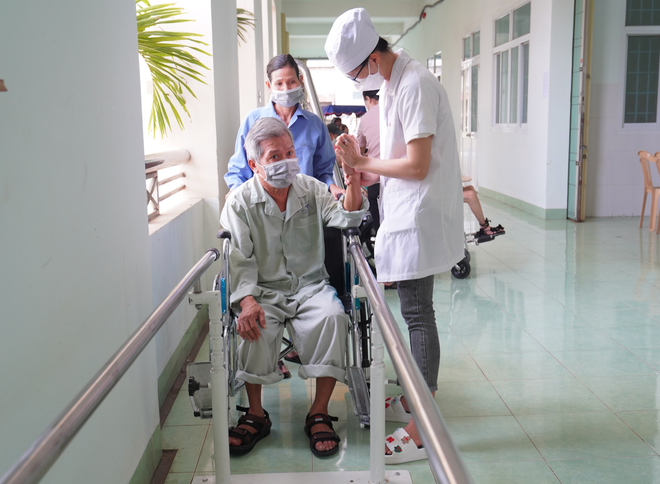 USAID helps improve the quality of rehabilitation services at Binh Dinh Traditional Medicine and Rehabilitation Hospital. (Photo: VietnamPlus)
USAID helps improve the quality of rehabilitation services at Binh Dinh Traditional Medicine and Rehabilitation Hospital. (Photo: VietnamPlus)
The US official said that in the coming time, the USAID will ramp up efforts to meet healthcare and social needs, improve PWDs-related policies, reduce physical and social barriers, thus facilitating integration of PWDs into all social activities.
The agency is currently collaborating with the National Action Centre for Chemical and Environmental Toxic Consequences (NACCET), the Ministry of Labour, Invalids and Social Affairs, the Ministry of Health, and local administrations in nine provinces (Quang Tri, Thua Thien-Hue, Quang Nam, Binh Dinh, Dong Nai, Binh Phuoc, Tay Ninh, Kon Tum, and Bac Lieu) to improve the quality of life for PWDs in Vietnam.
Grubbs said that the agency is expanding its support to other localities.
She added that last month, it launched a programme to assist PWDs in Bac Lieu province, which is expected to be rolled out in Ca Mau province soon, raising the total number of supported provinces to 10./.
